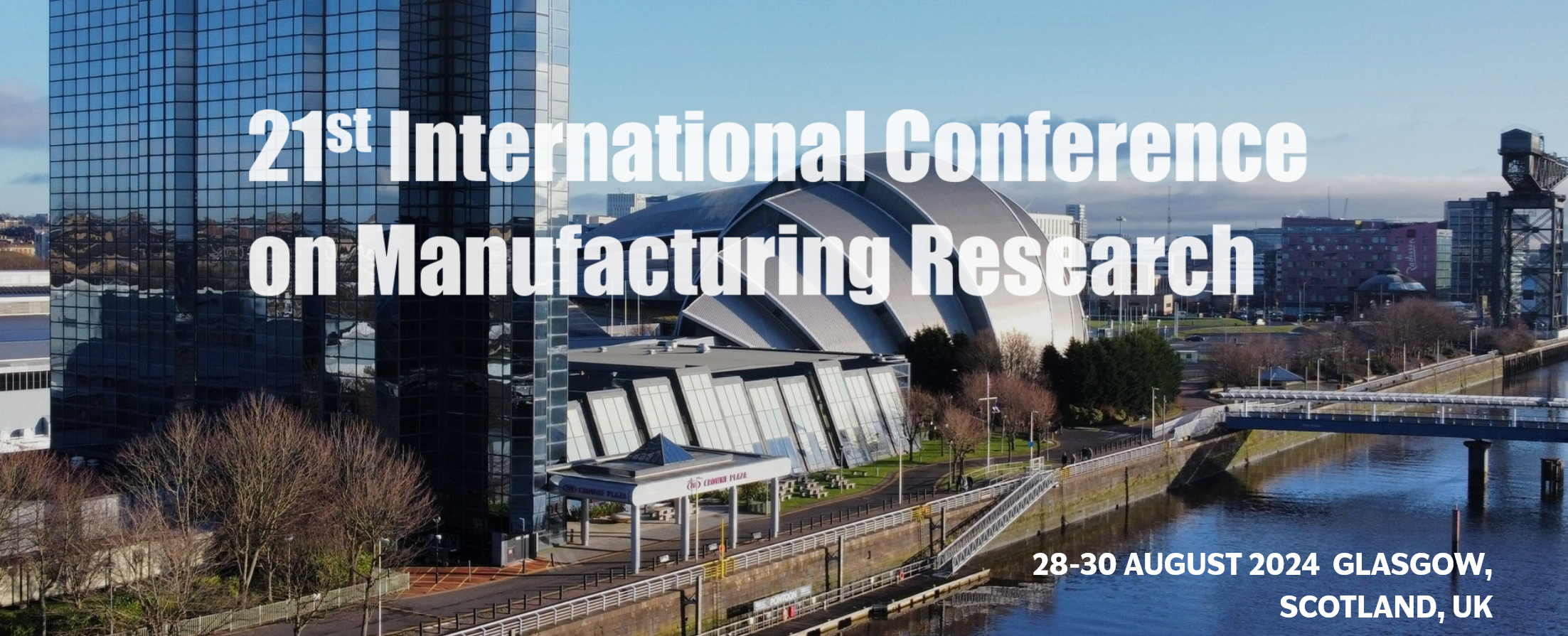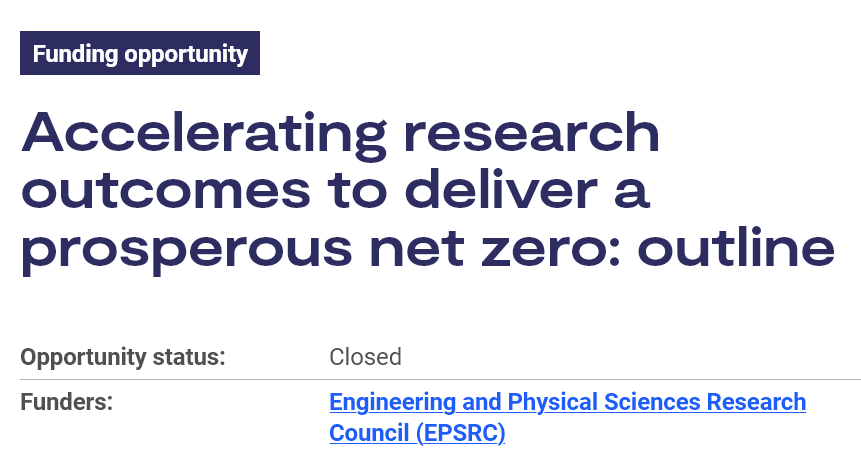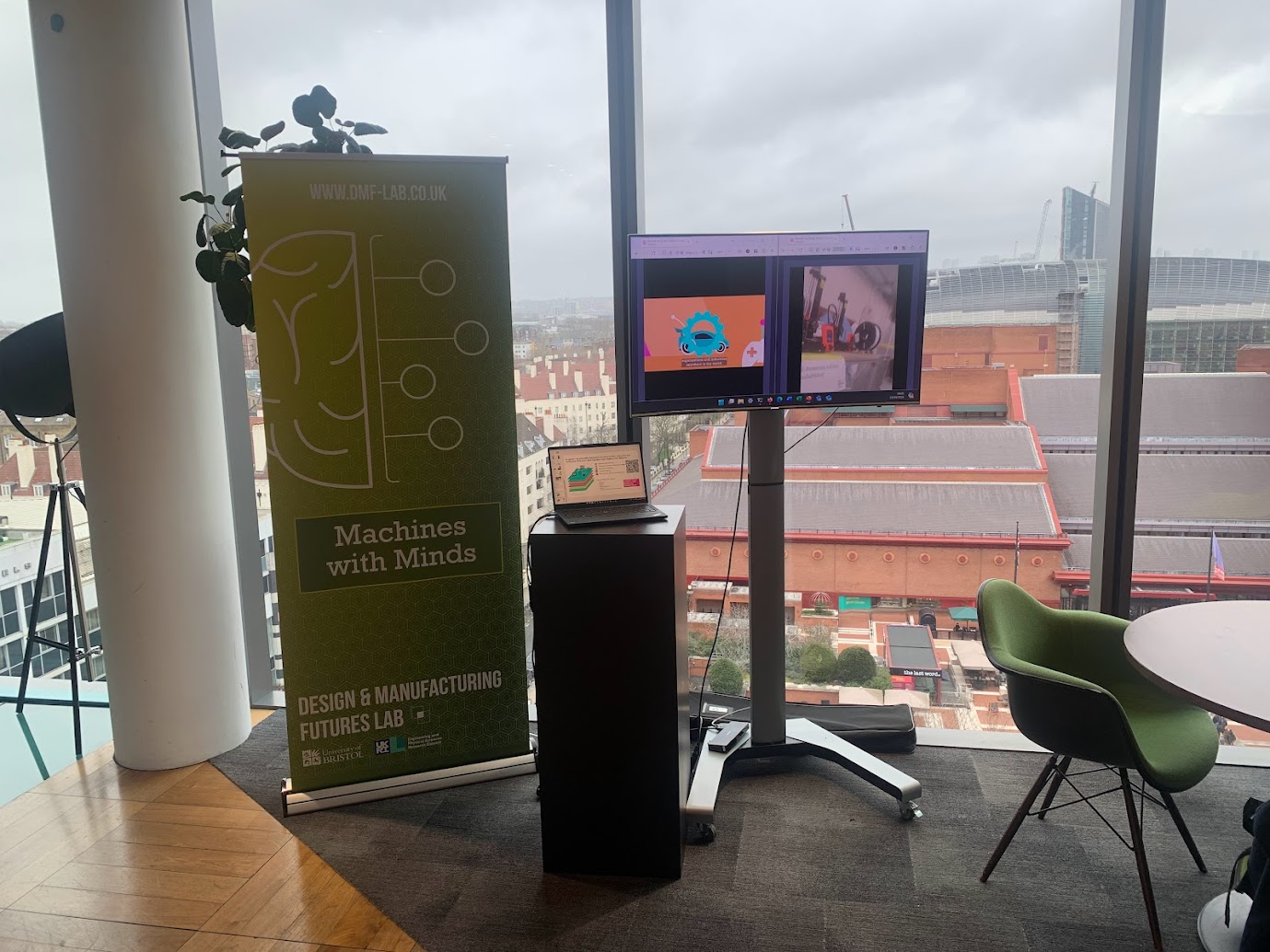The UKRI Innovation Launchpad: Researcher-in-Residence promotes academic engagement and is designed to enable researchers to work with the Catapults, undertaking a project or activity in an area of strategic importance. For more information on the scheme please click here.
The DMF Lab have successfully been awared three residences on the scheme 🎉. Below is a summary of each of the projects.
James Gopsill: "Adopting Artificial Intelligent (AI)-Agent Based Supply Chains in the Real-World: Eliciting the adoption challenges, value-add propositions, and commercial opportunities through AI-Agent Additive Manufacturing (AM) Supply Chains demonstrations"
AI‐Agent Supply Chain networks is a pioneering digital‐led research vision and solution tackling Big Demand – a sudden increase in the variety, volume, velocity, veracity, and value of items across Beginning‐of‐Life (BoL) production, In‐Life Spare‐Parts‐On‐Demand (SPOD) and End‐of‐Life (EoL) re‐circulation. Big Demand has been driven by society’s wish and need to change in light of a ‘perfect storm’ of global events including market fragility, mass‐customisation, Supply Chain uncertainty, Corporate Social Responsibility and legislation, National Security, Net Zero, sustainability, and the Circular Economy. Combating even a snippet of Big Demand using current Supply Chain approaches can take months or years with individuals negotiating across a small numbers of suppliers. In contrast, AI‐agents (AIgents) negotiate with everyone in milliseconds enabling them unite Supply Chains to tackle Big Demand.
Gopsill’s Researcher‐in‐Residence with the Digital Catapult will take him ‘on‐the‐road’ to demonstrate AI‐Agent Supply Chain networks. Physical and digital demonstrations of an AIgent AM Supply Chain will be commissioned. They will be presented at Catapult events and used in workshops, surveys, interviews, and demonstrator interaction studies with the objective of eliciting the adoption challenges, value‐add propositions, and opportunities in pulling‐through AIgent Supply Chains. The results will be published via blogs and academic publications, and the relationships formed will create and direct future UKRI research and pull‐through activities.
Mark Goudswaard: the Physical-Digital Affordance Index (PDAI)
Digitisation has become integral to engineering, influencing design processes, stakeholder interaction, and system management. The project recognises the impact of design representations, be they physical or digital, on design outcomes, processes and the cognitive processes of engineers. However, despite this recognition, a lack of industrially relevant methodologies has left questions about the most effective application of digital or physical design representations unanswered.
The PDAI aims to fill this gap by facilitating the selection of appropriate design tools based on specific requirements. The project will unfold in three phases, starting with the replication of academic studies in industrial settings, followed by new industry-focused studies shaped in collaboration with Digital Catapult partners and projects. The final phase involves testing the validity and applicability of the PDAI in real-world projects.
Collaboration with the Digital Catapult, a technology innovation centre, strengthens the project’s industry relevance. The goal is to establish a bridge between academia and industry, enhancing the application of design tools in real-world scenarios.
The project holds the promise of improving engineering digitisation practices, bringing greater efficiency and resilience to design processes.
Chris Snider: "Project Title"
Lorem ipsum dolor sit amet, consectetur adipiscing elit. Ut elit tellus, luctus nec ullamcorper mattis, pulvinar dapibus leo.
Recent Posts
Presenting at ICMR24
Aman Kukreja, Christopher Cox and James Gopsill attend and present at the International Conference on Manufacturing Research 2024.
Presenting at Transdisciplinary Engineering 2024 (TE2024)
James Gopsill presented his paper on Distributed Additive Manufacturing at TE2024.
Papers accepted to TE2024 & ICMR24
The RiR with the Digital Cataput has produced a couple of papers to articulate the benefits of AIgent supply chains.
Expression of Interest Submitted to the UKRI Accelerating Research Outcomes call
Significant progress continues to be made on the RiR and has resulted in the submission of an EoI to the UKRI Accelerating Research Outcomes call
Exhibiting at the DSCH Supply Chain Event
Showcasing the future of work with AIgent operated supply chains.






